The first round of Iran's presidential election saw a decrease in voter participation among the country's Turk population, despite the presence of a Turk candidate.
The election ended with a surprise led by Masoud Pezeshkian, an ethnic Azeri Turk.
Before the voting, many anticipated that Pezeshkian would secure a significant number of votes from the Turk-speaking population.
However, the election results revealed that even the presence of an Azeri Turk candidate did not boost participation.
This outcome raises questions about the factors influencing voter behaviour in this election.
Since the Guardian Council approved the candidacy of Pezeshkian, suspicions arose due to his Azeri Turk ethnicity.
These suspicions were so pronounced that certain fundamentalist and reformist groups considered writing to the Guardian Council to demand his disqualification.
They feared that Pezeshkian's candidacy could exacerbate ethnic tensions in Iran and potentially lead to division.
These accusations were made despite Pezeshkian's election slogan emphasizing unity.
He repeatedly stressed his commitment to "cohesion" and "national unity" throughout his campaign.
Nonetheless, some individuals concerned about Iran labelled him an "ethnicist," sharing videos of him speaking Azeri Turk and advocating for education in one's mother language.
They argued that he was only seeking ethnic votes. However, election results demonstrated that a significant portion of Iranian Turks did not vote based on linguistic commonality alone.
Statistics on the Turk-speaking population in Iran vary.
Some estimates suggest they make up 17 per cent of the population, approximately 13 million, while others place this figure as high as 25 per cent.
In 2013, Ali Akbar Salehi, Iran's vice president, claimed that 40 per cent of Iranians speak the Turk language.
A significant portion of this population resides in the provinces of East and West Azerbaijan, Ardabil, and Zanjan.
According to the 2015 general population and housing census, these provinces have a combined population of 9,502,760.
In this election, nearly 7 million people from these provinces were eligible to vote.
However, election statistics revealed a decrease in voter turnout in these areas, despite an Azeri Turk running for president.
In other words, Pezeshkian's ethnicity did not motivate many people in these regions to vote.
The following table illustrates the difference in participation rates between the 2021 and 2024 presidential elections in these four provinces, showing a 23.5 per cent decrease in voter turnout in the Turk-speaking provinces.
| Province | 2021 | 2024 | Decrease |
| East Azerbaijan | 48.78% | 40.12% | - 6.66% |
| West Azerbaijan | 44.25% | 44% | -0.25% |
| Ardabil | 54.93% | 46% | -8.93% |
| Zanjan | 53.65% | 46% | -7.65% |
Saeed Jalili encountered electoral challenges in various areas, including parts of East Azerbaijan province.
One notable example is the city of Varzeghan, near where Ebrahim Raisi's helicopter had crashed.
Experts believe that Turk-speaking regions exhibit a strong preference for candidates who advocate for their linguistic and cultural identity.
However, statistical evidence suggests a more complex electoral behaviour.
During the campaign, several statements by Turk-speaking Pezeshkian about ethnic identity sparked significant reactions among the broader Iranian public.
One individual noted, "If Pezeshkian takes a firm stand against federalism and ethnicism, and if he asserts that Iran is a unified nation celebrating its diversity, I will vote for him. Otherwise, based on his previous statements, I will not support him."
Concerns grew following his speech at a conference in Tabriz, where he stated, "I will not let them take the Sungun copper [mine] income that they have been extracting from here for years."
This statement resonated with some of his supporters, like Ali from Ahar, who believed, "If Pezeshkian fulfils his promise and retains the revenue from Azerbaijan's copper industry within the region, it is worth voting for him."
Conversely, his opponents argued, "The enemy of Iran, who still misunderstands the role of the president, declared in Tabriz that he will not allow Sungun copper mining. It's permissible to extract resources like stone from Mahalat and steel from Yazd and Isfahan, but illegal for Sungun copper to go to Kerman? This marks the beginning of Iran's disintegration by inciting ethnic groups."
In response to these allegations, Pezeshkian clarified, "If I were an ethnicist, I wouldn't say Iran is for everyone. If I were an ethnicist, I wouldn't have fought on the front lines for Iran."
Turk-speaking voters had different priorities.
They expected the candidate to address their long-standing demands, such as the urgent need to save Lake Urmia.
In a gathering in Tabriz this month, supporters chanted, "Lake Urmia is without water, and if Azerbaijan does not rise, it has lost."
These complex dynamics illustrate the interplay between ethnic identity, regional loyalty, and national unity in shaping electoral outcomes in East Azerbaijan.
In March 2016, Pezeshkian in the Iranian parliament declared, "I am grateful that God made me a Turk, and no one has the right to make fun of the language and culture of the Turks."
According to Article 15 of the Constitution, Turks and other ethnic groups in Iran should be able to write, speak, and learn their language in schools.
While these statements resonate deeply with his supporters, who see them as a promise to uphold Article 15 of the Constitution, they have also sparked concerns among opponents.
Supporters in Tabriz hoped for the implementation of Turk language education in schools.
A citizen who attended Pezeshkian's supporters' gathering in Tabriz expressed disillusionment with IranWire.
"They sat down and repeated a series of good words, but nothing will change with these meetings," he said.
Some Azeri Turk activists argue that a Turk president could address their long-standing demands.
Niloofar told IranWire, "One of us understands our pain. We want an education in the Turk language. Someone should take the lake issue seriously and see the problems of this area."
Masoud, a supporter from Tabriz, said: "I went and voted. I also voted for Pezeshkian. He is from our homeland. He deserves this position and more importantly, he is from this region and has been familiar with the issues of this region for many years.
"When he was in parliament, he might not have been able to do important things on his own, but if he becomes president, he can change many things here."
However, there are significant detractors within these regions.
Shahab, an opponent, said, "If it's Pezeshkian, Jalili, or anyone else, neither here nor anywhere else can do anything.
"Even if he is a Turk, they don't let him work anymore. Let's go vote and destroy one of our own, what will happen? The problem is from somewhere else."
Majid from Khoi echoed this sentiment: "My pain here is not much different from the pain of someone in Baluchistan, but he may have more suffering than me.
"But neither I, a farmer here, is important to anyone, nor the one who is there. Our ears are full of these promises."
The complex interplay of ethnic identity, regional loyalty, and national politics presents a significant challenge in mobilizing Turk-speaking voters.
Despite the candidate's emphasis on addressing the demands of marginalized regions, residents feel that merely changing the president will not solve their deep-rooted issues.
Their concerns extend beyond identity to economic matters, and the economic promises of candidates have failed to capture their attention or drive their participation.











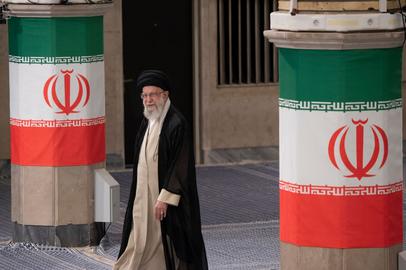
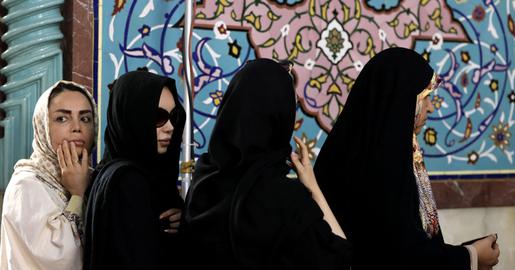


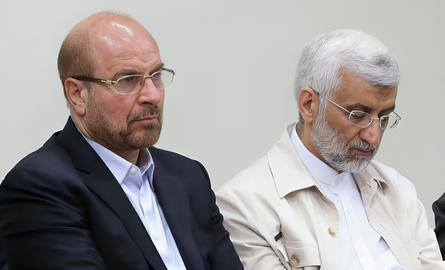






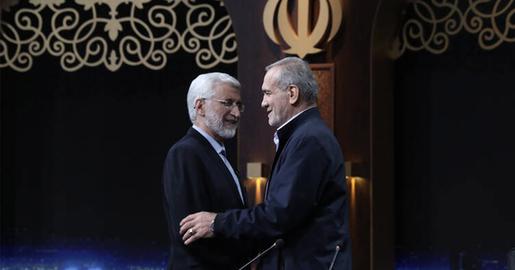
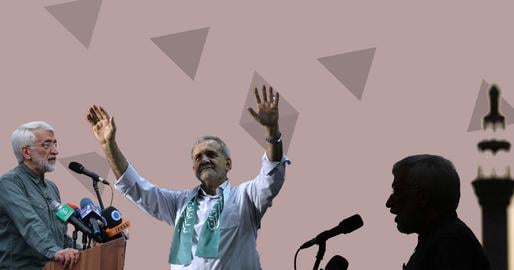

comments